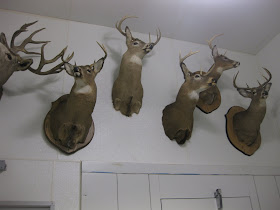Consider Bardwell Farm

The mountains of Vermont were visible in the distance as we drove from farm to farm. Our lone border crossing occurred midway through our second day of camp when we ventured to Consider Bardwell Farm in West Pawlet, home to several award-wining artisanal cheeses. We were greeted by owner Angela Miller and a few dozen happy Swiss Oberhaslis goats.


These cute, chocolate brown creatures are raised on pesticide- and fertilizer-free pastures by Angela and her husband, Russell Glover, on a picturesque 300-acre farm. Angela and Russell split their time between the farm and New York City where she is a literary agent and he is an architect. The couple purchased the property in 2000 as a weekend country escape. Perhaps their destiny was sealed at that moment; their newly acquired farm had been the site of Vermont’s first cheese-making cooperative, founded in 1862 by a gentleman named Consider Bardwell.

We toured the farm and facilities, including the cheese caves

and cheese-making room where we were introduced to master cheese-maker, Peter Dixon.

Peter began making cheese in the ‘70’s, perfecting his craft at Vermont Butter and Cheese and Shelbourne Farms before joining Consider Bardwell. While watching him work his magic, cutting curds in a huge vat of milk, we got a quick 101 on what goes into making world class cheese.

The farm makes 60,000 pounds of cheese a year, all by hand.

In addition to Consider Bardwell's five raw milk goat cheeses they make four raw cow milk cheeses using milk from a neighboring herd of Jersey cows. Of their nine cheeses, Dorset, Manchester, Pawlet, and Rupert have all won awards from the American Cheese Society. Pretty impressive for less than a decade’s worth of work!
Eagle Bridge Custom Meats

I can safely say slaughterhouses never crossed my mind – ever – until I became interested in eating locally. Honestly, it’s not a topic the average person wants to consider. Talk to a livestock farmer, however, and it inevitably comes up and for good reason; the lack of local slaughterhouses is one of the biggest stumbling blocks to wider availability of affordable pasture-raised meat from local farms. Tales of farmers waiting months to get a processing appointment for their animals and then driving hours to get to the facility are common.

Given this, Washington County is fortunate to have Eagle Bridge Custom Meats. Started five years ago as a butcher shop where locals could get their meat cut, smoked, processed, and packaged, owners Steve Farrara and his sister, Debbie Bell, have taken the steps necessary to become a USDA slaughterhouse.

We received a tour of the soon-to-be-opened facility and discussed how the building was designed for respectful animal handling and expert butchering. It has been an involved process of compliance and expense for Steve and Debbie, but once done the business will be a great addition to the farming community.
Nettle Meadow Farm and Cheese Company

One of my favorite speakers was also the last of the weekend. You couldn’t help but be charmed by Shelia Flanagan, co-owner of Nettle Meadow Goat Farm and Cheese Company. She drove down from the southern Adirondack town of Thurman, NY to meet us at the barn and give us a taste of her truly exceptional goat cheeses. From the start it was evident that Shelia is a gentle soul and great care goes into every step of making Nettle Meadow’s artisanal cheeses, starting with the goats.
My first line of notes from her talk was “Animals come first”. My last line of notes was “Well-being of animals is #1”. The pamphlet she handed out says “Happy Goats – Great Cheese”. She isn’t joking! Shelia and her partner, Lorraine Lambiase, have named every one of their 250 Nigerian Dwarf goats, 8 Jersey cows, and 30 sheep. The goats are fed natural ingredients such as organic hay, grains, wild herbs, raspberry leaf, garlic and kelp. In addition to their working farm animals Sheila and Lorraine also run an animal sanctuary for horses, donkeys, and retired goats.
Cheese is a very fragile product, especially goat cheese. Nettle Meadow makes their cheese only with morning milk, capturing its freshness and sweetness, and always uses the milk within 24 hours of milking. One of their best-known cheeses, Kunik, is a unique triple cream made primarily of goat’s milk and a bit of Jersey cow cream. It is utterly creamy and delicious, garnering praise from Murray’s Cheese Shop as “one of the 300 best cheeses in the world”.
Their fresh chevres and fromage blancs are flavored with a wonderful combination of ingredients such as honey lavender, lemon verbena, horseradish, pumpkin spice and maple walnut. Their most recent creation is called Three Sisters, named for the Three Sister Mountains that stand over their farm, and made of sheep, goat, and jersey cow sheep. I've never met a cheese I didn't like but rarely do I fall in love with one in particular. In the case of Nettle Meadow, I loved them all!

No comments:
Post a Comment
Note: Only a member of this blog may post a comment.